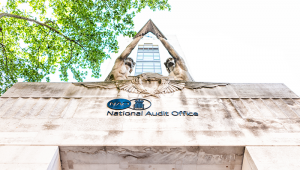In a report today, the Public Accounts Committee said the WGA was a world leader in the breadth of its coverage of national finances but “needs to be published more quickly after the year-end and include more information on the reasons for significant movements on the balance sheet and on where public money is going”.
The report, titled The Government Balance Sheet, warned that, with a period of economic uncertainty looming due to Brexit, it would be essential that the Treasury understood and acted on the financial risks found, and was clear about the impact of government decisions on the short and long-term financial positions.
Publication of the 2014-15 WGA happened only in May 2016. It covers more than 6,000 public sector organisations.
The committee called for “an enforceable plan” to produce the WGA more rapidly each year.
It warned that significant liabilities on the government’s balance sheet “could crystallise in the event of a significant shock to the economy”, and recommended that the Treasury developed contingency plans.
MPs said the Treasury should by March 2017 set out how it would improve the quality of long-term decision making across government departments.
The committee chair, Labour’s Meg Hillier, said: “It cannot be stressed enough: government departments are spending our money and access to clear information about what they are doing with it is fundamental to holding them to account.
“While the Whole of Government Accounts provide valuable insights, there is scope to improve the speed with which they are published and their ease of use.”
Hillier said the committee feared the government had done too little to deal with risks shown in the WGA, an example being its increasing liability for clinical negligence claims.
She also said the WGA showed that some spending by government departments reflected “a short-term approach to the spending of public funds [that] is not compatible with a value-for-money approach to spending taxpayers’ money on complex projects that may run for many years”.
CIPFA chief executive Rob Whiteman said that he shared the PAC’s verdict on the usefulness of these accounts.
“The WGA provides a solid foundation upon which to make sound fiscal decisions,” he stated.
“It’s important now for policy makers to use it to give the UK a real competitive advantage, rather than the inaccurate statistical methods they are used to. It’s time the Treasury brought national financial planning in to line with professional standards.”
Since 2010/11 public sector pension liabilities have increased from £961bn to £1.5tn despite government action, he highlighted. "This is dangerously unsustainable, he added, and those who obstruct reform now are likely seeding the collapse of the entire system in decades to come.
“CIPFA has also recognised the real need to produce the WGA earlier, so it can inform the Autumn Statement.”
Responding to the report, a Treasury spokeswoman said: “The Public Accounts Committee’s report recognises Treasury’s Whole of Government Accounts is world-leading in providing a transparent view of how public finances are managed.
“We are committed to further improving its quality and timeliness, as part of our efforts to ensure that government uses taxpayers’ money to deliver maximum value for money and effectiveness.”



















